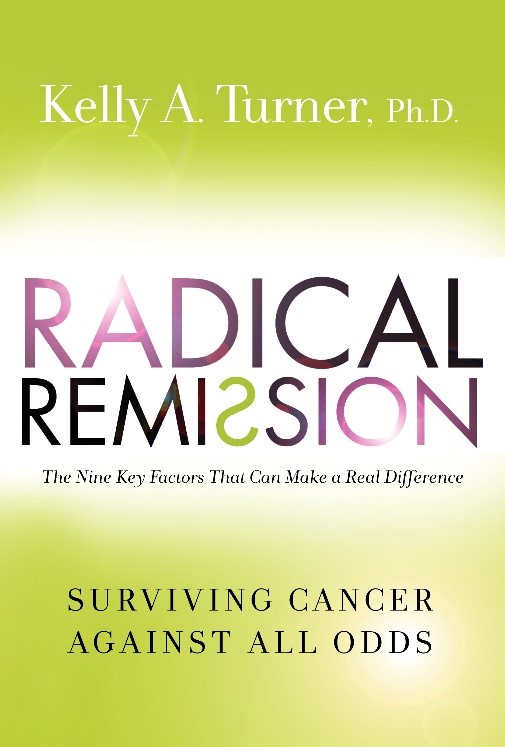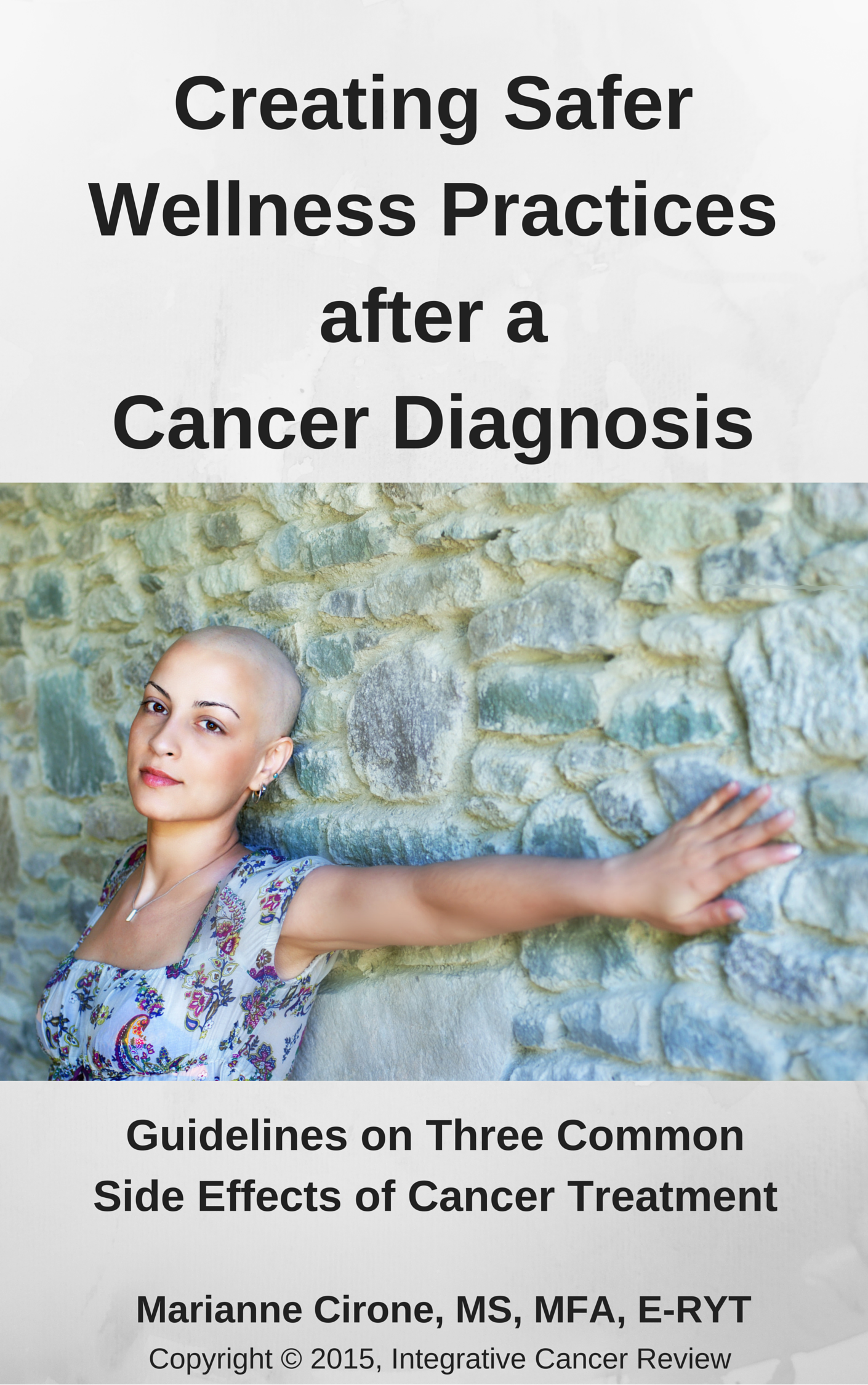A Book Review by Marianne W. Cirone, MS, MFA, CYT-500
If you read only one book on healing this year, Radical Remission: Surviving Cancer Against All Odds would be a great choice. In this New York Times bestselling book, author Kelly Turner, PhD, summarizes her interviews with one hundred cancer survivors and analysis of over one thousand cases of people who experienced a “radical remission” from “incurable” illnesses.
Dr. Turner, a researcher and psychotherapist who specializes in integrative oncology, studied spontaneous healing, which she calls “radical remission” — when cancer goes away despite medical expectations, such as in cases of advanced or aggressive cancers. She found that 75 healing factors appeared in these cases, but nine were common among all of the cases she studied. She calls them, “The Nine Key Factors That Can Make a Real Difference.”
These nine key factors, not in any particular order, are:
- Radically changing your diet
- Taking control of your health
- Following your intuition
- Using herbs and supplements
- Releasing suppressed emotions
- Increasing positive emotions
- Embracing social support
- Deepening your spiritual connection
- Having strong reasons for living
All of these factors entail a proactive approach, not sitting around waiting for a ‘spontaneous’ remission, which these are not. Seven of these factors are psychosocial (mental/emotional) factors that require a depth of internal work, while the other two factors involve proactively supporting the body and the physical being.
This research provides not only critical information for people dealing with serious illnesses, but for anyone interested in optimizing their own health and potentially preventing cancer and other medical conditions.
The book includes specific stories of each healing factor and a case story that illustrates how a patient with Stage 4 cancer or other potentially terminal condition overcame the odds to become well. For example, in Chapter 5, Dr. Turner describes stories involving the release of suppressed emotions. She states that in her research, including many interviews with non-Western healers, a theme that repeatedly showed up was the belief that illness is a blockage on either the physical, emotional or spiritual level. One of the most common suppressed emotions that Radical Remission survivors talked to Dr. Turner about was fear — and the first thing that many of the healers she talked to said needed to be addressed.
Dr. Michael Broffman, a well-known licensed acupuncturist and herbalist in the San Francisco area stated: “…if you can deal with uncertainty about the cancer by staying in the present, then that seems to be the ticket. From a remission standpoint, it seem to then cause the body to relax.”
To illustrate the potential power of releasing suppressed emotions, Dr. Turner shares a life story about Joe, a gay man diagnosed with metastatic lung cancer. Joe worked on letting go of his resentments toward his partner and toward God, focusing on “letting go of every ounce of anger and pessimism from his past” — along with a whole host of other lifestyle changes. Despite dire predictions, tests have shown that Joe’s tumors have continued to either shrink or hold steady.
Stories of other Radical Remission survivors provide substantial encouragement for researchers to delve more deeply into each of these nine factors, looking for the evidence to support that patients can empower themselves to change and to thrive.

















